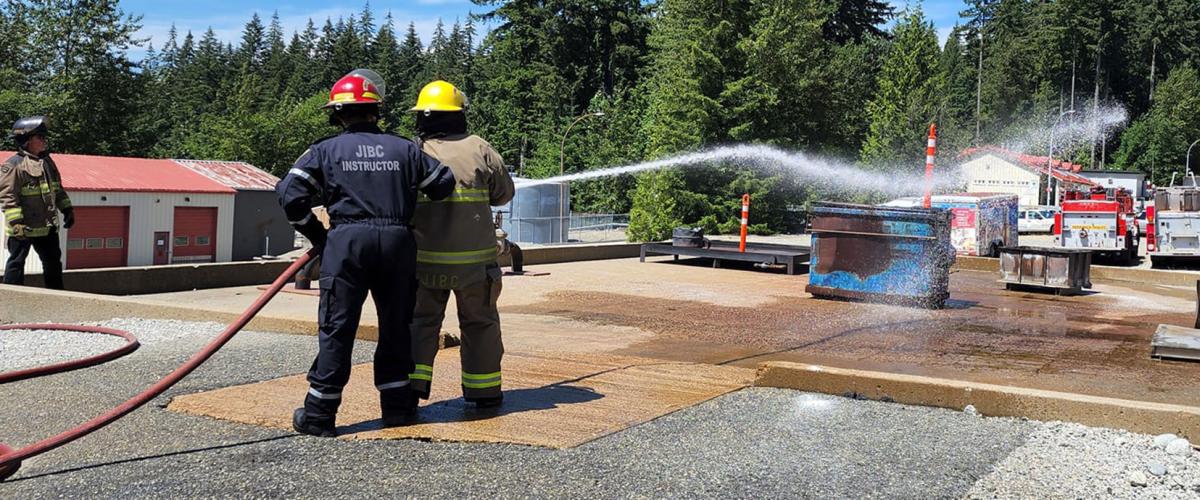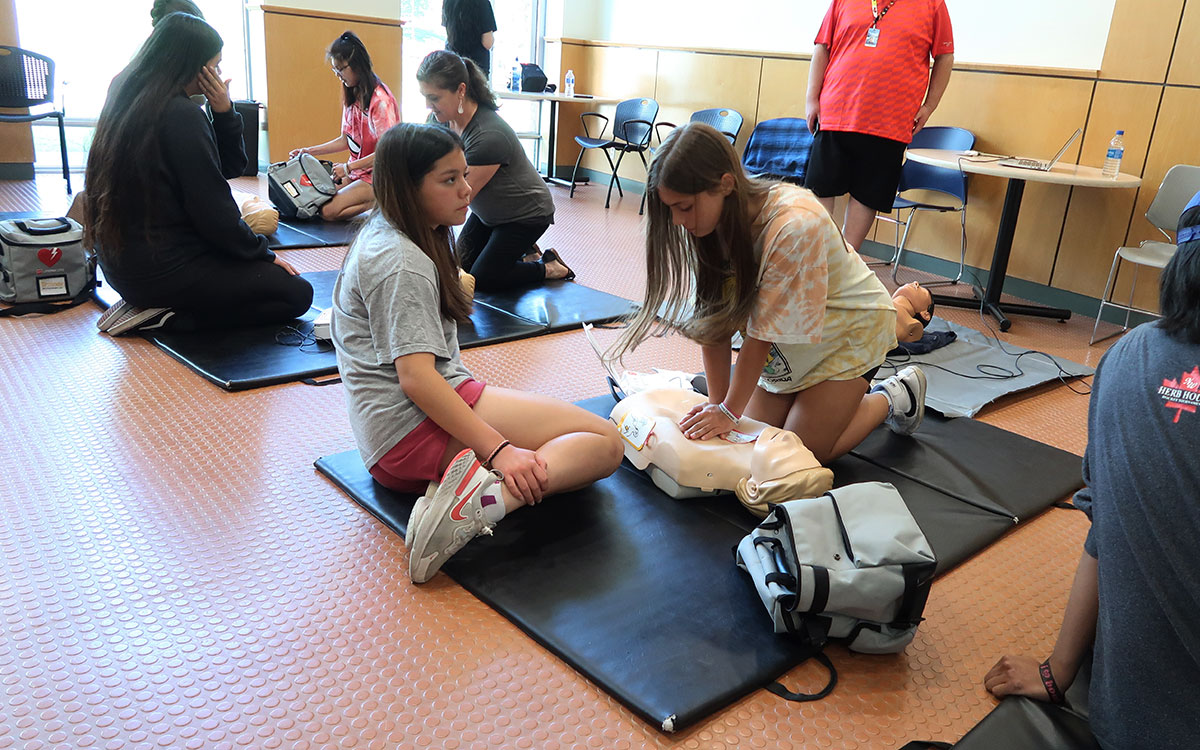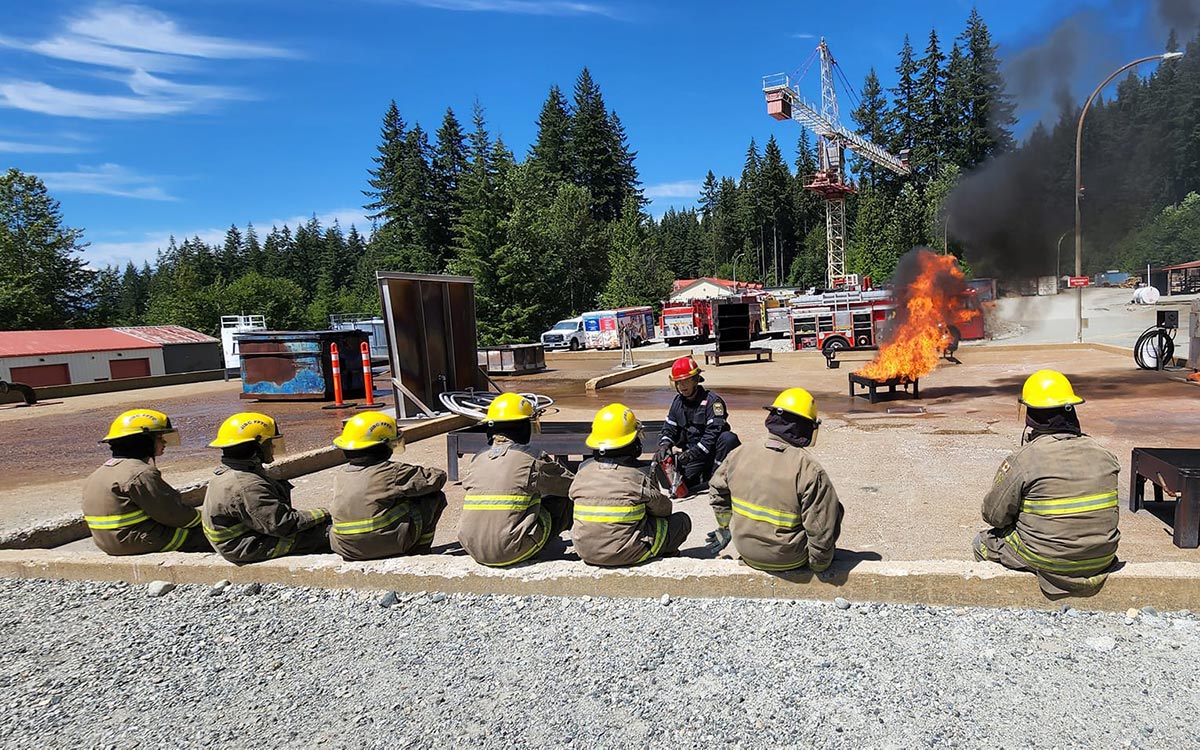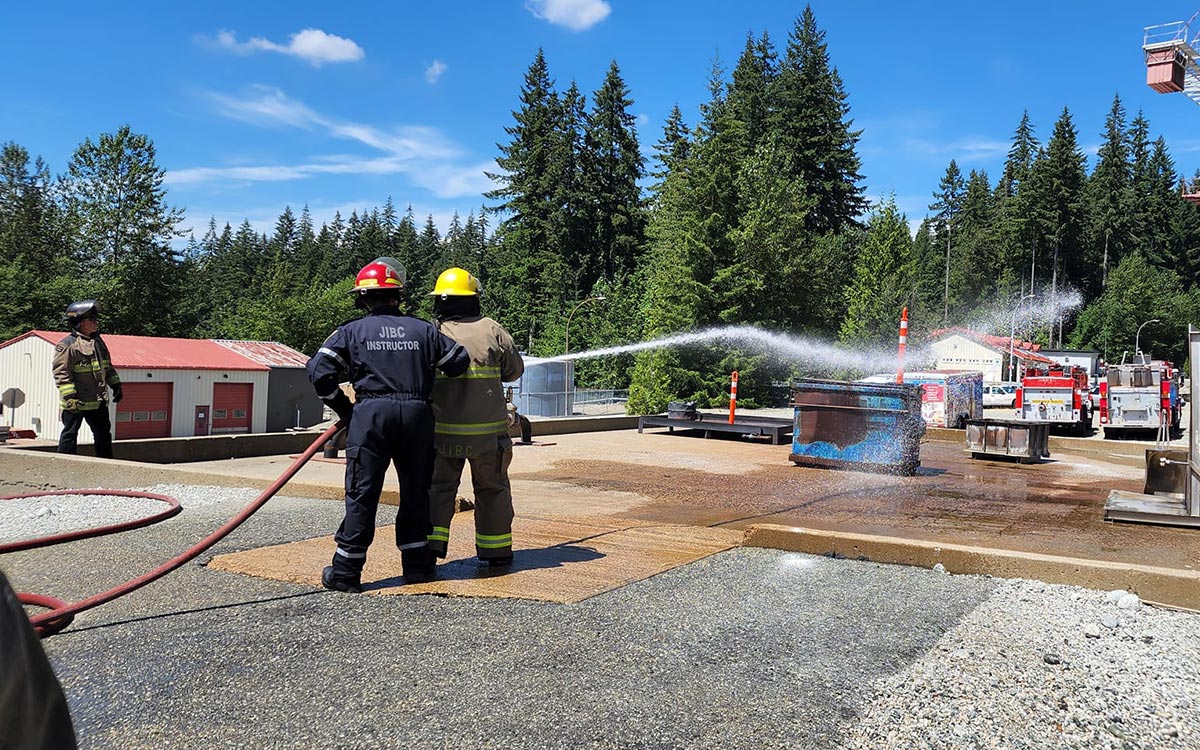JIBC camp introduces Indigenous youth to career options ranging from firefighting and paramedicine to law enforcement
The Justice Institute of British Columbia (JIBC) was pleased to welcome participants to its Indigenous Youth Career Camp (IYCC) at its campuses last week, July 18 to 22, where they gained an introduction to public safety career options. This is the first fully in-person IYCC since the pandemic began more than two years ago.
This year’s camp was funded by the Ministry of Advanced Education and Skills Training at no charge to participants. It saw nine participants, aged 14 to 20 and hailing from across the province, explore careers in justice, public safety and health care through hands-on learning and engagement with a wide range of community partners at JIBC campuses.
“The overall goal of the camp is to provide Indigenous youth with the chance to learn about a variety of justice and public safety careers through an applied experience,” said Jason La Rochelle, Director, Office of Indigenization. “It is valuable for Indigenous youth to learn more about these fields, so they can decide if any of these career options are for them. I believe Indigenous People can benefit with more Indigenous representation in justice and public safety careers and this camp is one way to show these youth what opportunities are available.”
The participating youth experienced firefighter training at the Institute’s Maple Ridge campus, as well as emergency medical responder training at the main New Westminster campus. At the main campus, they also engaged in sessions with the Police Academy, and JIBC’s Corrections & Court Services, Emergency Management, and Community & Social Justice divisions. They also paid a visit to the New Westminster Courthouse with members of the Sheriff Academy.
In addition, the youth received Indigenous cultural programming and were supported by JIBC Elders-in-Residence.
“JIBC’s Indigenous Youth Career Camp provided the opportunity for Indigenous youth to learn about careers in justice, health, and safety which is important because they are the people to protect our well-being in our communities,” said Elder Ken Pruden, Métis Nation. “It provided hands-on experience to enable them to know the career… the profession they choose.”
JIBC believes bringing Indigenous people and perspectives into the fields of justice, public safety and health care is essential to achieve our national goal of Truth and Reconciliation. As the fastest growing demographic in Canada, Indigenous youth will make up a significant portion of British Columbia’s future workforce.
Cherokee Bent of Thompson Nation said the camp not only showed her different career options and allowed her some social networking, it was a healing experience.
“It changes your relationship with what you think of law enforcement, giving this program a chance to change your perspective or alter it,” Bent said. “Seeing Indigenous police, and seeing Indigenous lawyers, and Indigenous people here is also really important to have a trauma-informed approach, an appropriate approach to our People. These Indigenous People they’re on our side. Our People are here. We can feel comfortable. It was definitely impactful and it got me to see things in a different light.”
Justin Thomas of Skatin Nation was enthusiastic in his praise of the experience. He said he learned much about the career options available in justice and public safety, many of which appeal to him. He’s now inspired to consider a career as a paramedic and perhaps even one day to teach at JIBC to inspire other young people.
He recommended any other Indigenous youth to take the opportunity to experience the program.
“It is a great place here. This place will give you joy and it kind of would make you want to go here,” he said of JIBC. “For First Nations youth, it’s got culture here. Our culture.”



